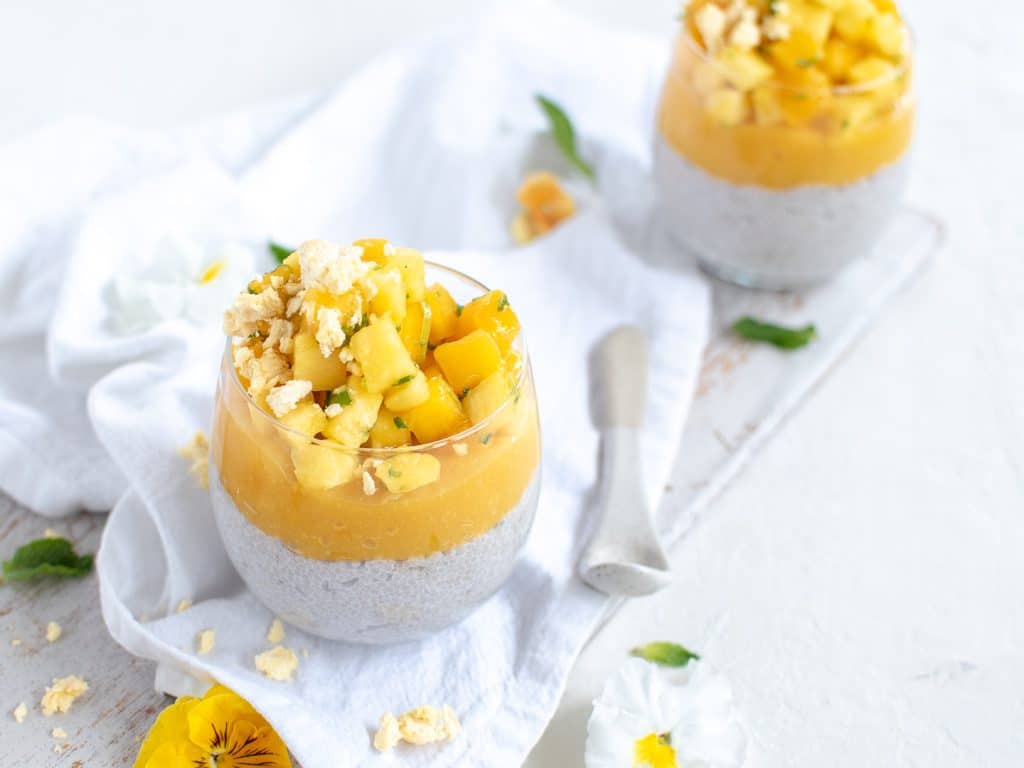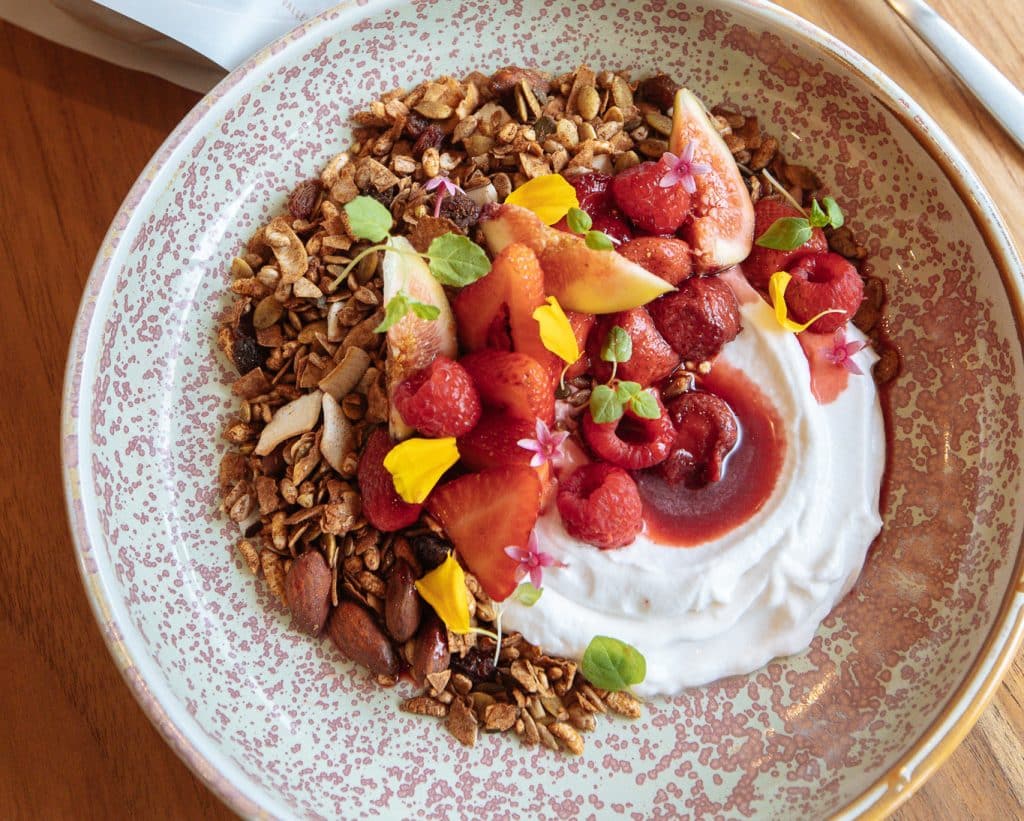Probiotics have become a regular topic of conversation in nutrition. Often it’s in relation to gut health, but the benefits of supplementing this good bacteria into your diet extend far beyond this. In this journal entry, we explore exactly what probiotics are, what benefits they can provide, and how you can start naturally adding them to your diet every day.
What are probiotics?
We often hear about probiotics, but you may still not be able to quite pinpoint what they are. Quite simply, probiotics are beneficial, living microorganisms that can be found in many foods and supplements and help to protect you from harmful bacteria.
“Pro bio” means “for life”. If you think of your gut as a garden, probiotics act as the seeds that bloom into plants and flowers.
On the other hand, prebiotics are a fibre that feeds the good bacteria in your gut, allowing them to thrive and maintain the optimum balance. To continue with our garden metaphor, prebiotics are the fertiliser that allows the probiotics to grow and flourish.
Gram-negative (“bad”) bacteria naturally exist within your gut ecosystem, just as weeds naturally grow in a garden. In small amounts, these pose relatively no harm and are completely normal. It’s when the bad bacteria grow out of hand that problems may arise.
So, what can cause an upset in the natural balance of your gut? You may be surprised to discover that there are many potential reasons. Taking an antibiotic is the most obvious example. In their mission to kill overgrown bad bacteria, antibiotics wipe out everything – including the good from your gut. However, medications are far from the only cause of imbalance. Other factors that result in this similar “anti-life” effect are:
- Chemicals in our water
- Pesticides on our food
- Beauty products
- Pollution
- Birth control pills
Taking probiotics ensures that you are constantly feeding life into your gut and maintaining the correct balance to support a healthy gut ecosystem.
Why our bodies need good bacteria
Beyond gut health, the benefits of good bacteria ripple through our entire bodies. Bacteria help us digest and absorb nutrients and energy from our intestines into our bodies, which every single bodily function is dependent upon.
At the same time, they defend us from disease, help regulate our hormones and produce several vitamins in the intestinal tract.
Potential benefits of taking probiotics
Depending on the strain of probiotic, there are a number of wonderful benefits that you can receive from supplementing this good bacteria into your diet, such as:
- Reducing symptoms of digestive discomforts, such as bloating and gas
- Strengthening your immune system
- Enhancing mood
- Improving skin health
- Supporting heart health
- Enhancing mental health
Let’s explore this final point further.
The mental health benefits of gut health
Research has found evidence linking activity between our brain and gut. In fact, more signals are reported to be sent up to the brain from the gut, rather than vice versa. This suggests that we can positively impact our mental health by enhancing our gut health, which is relatively easy to do with the right balance of nutrition.
Potential consequences of not taking probiotics
If the Gram-negative bacteria in your gut is overriding your Gram-positive bacteria and you do not supplement your diet with a sufficient amount of positive bacteria to restore balance, a number of consequences can potentially occur, such as:
- Overgrowth of pathogenic bacteria
- Yeast infections
- Parasites
- Compromised mental health
- Compromised immune function
- Pain and discomfort with bowel movements
- IBS
Including probiotics in your regular diet
The wonderful news is that probiotics can easily be added to your diet. Quality and quantity are both important, as well as a high variety of probiotic strains. Look for products with as many as 14 strains – remember, the more varieties of “seeds” we can throw on our “gut garden”, the better!
Fermented foods rich in probiotics include:
- Yoghurt
- Kefir
- Kimchi
- Miso
- Kombucha
- Pickles
Prebiotics can also be found in a number of foods, such as:
- Oatmeal
- Asparagus
- Onions
- Bananas
- Apples
Each of these foods can easily be included in your weekly menu to support a thriving gut ecosystem. You can also consume a probiotic supplement if your diet is lacking in these foods.
If you feel you need to add more probiotics to your diet, we suggest speaking with your doctor or nutritionist to determine the right nutritional balance for you. At Eden, our health professionals are available for consultation about your health and can share a wealth of in-depth nutritional knowledge that you can carry into your everyday life. If you are seeking to rejuvenate your health, click here to discover the experience we can provide for you.
To reap the benefits of Eden from home, try our Mango Chia Pudding with Pineapple and Mint, available in our A Taste of Eden ebook. Chia seeds are wonderful for fostering the growth of probiotics, as their gelatinous texture coats your stomach and creates a healthy foundation for good bacteria to grow. Click here to sign up to our newsletter and receive a free copy of our ebook delivered to your inbox straight away.






